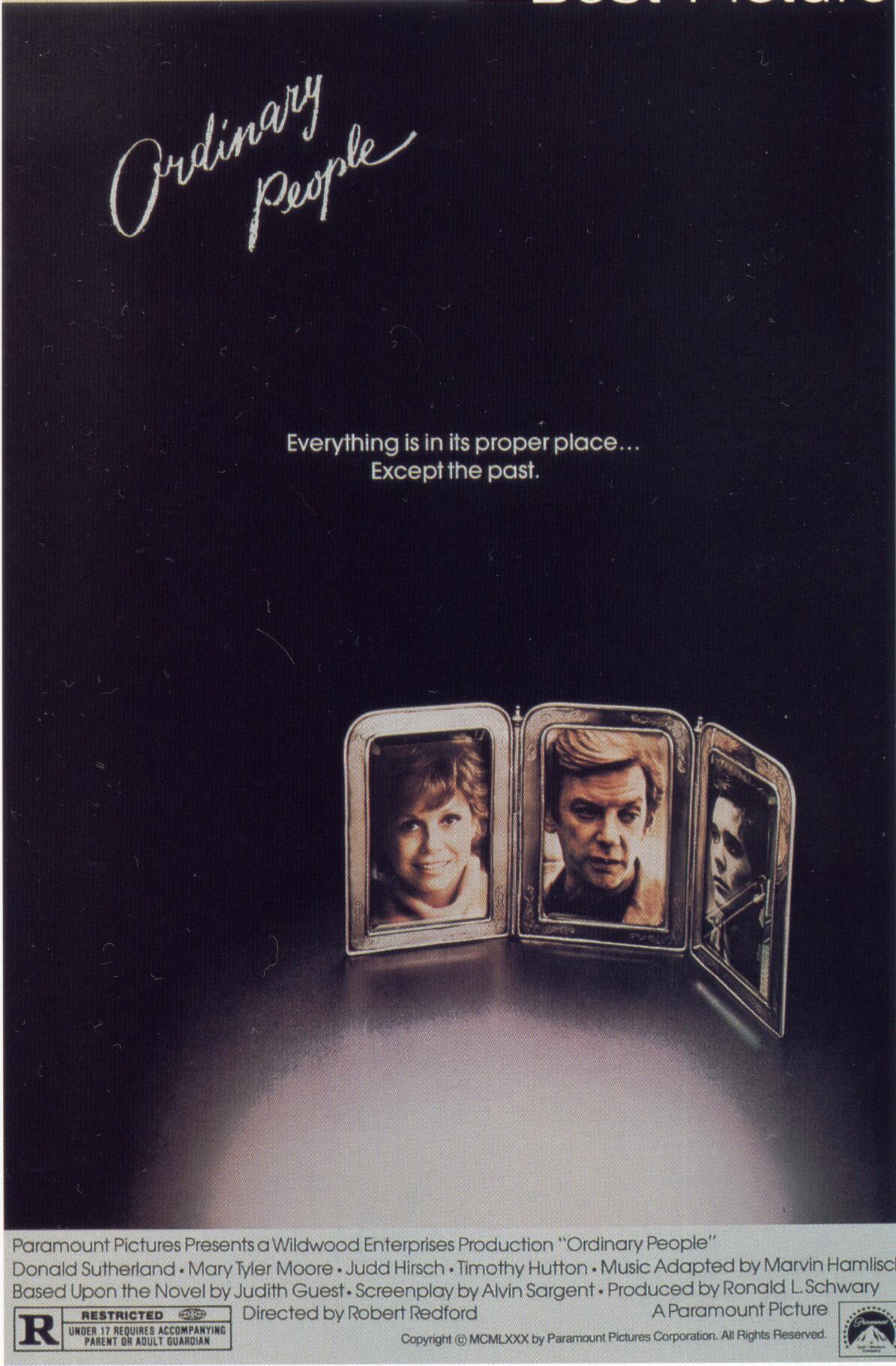
7 out of 7
The Judith Guest novel turned Robert Redford directed Academy Award wining film, Ordinary People, is a touching and honest look at the strength it takes to recover from loss.
The film begins in media res, so to speak, after the death of the eldest son in the Jarrett family and the attempted suicide of the only remaining son, Conrad (Timothy Hutton). The initial half hour of this 2-hour film is slightly confusing because exactly what has happened isn’t spelled out. Rather, Redford directs the film so as to allow the audience no further narrative perspective than any one in the family is permitted, especially Conrad, from whose eyes the film is viewed most frequently and forcefully. Part of Conrad’s narrative perspective involves his seeking psychiatric counseling from Dr. Berger (Judd Hirsch). Through his relationship with Berger, Conrad begins to rediscover one of the elements that keeps people, people: emotion. After his brother’s death, Conrad shut down his capacity to feel so as to avoid the pain that would result. The film then does a great job of watching Conrad as he begins to reengage feelings – for all their ups and downs – and begins to heal from his past wounds. Sadly, though, the movie ends with he and his father (Donald Sutherland) sitting on their back steps after his mother (Mary Tyler Moore) has left. For his mother, who has also shut down her feelings (Conrad’s father even says at one point in the movie that she and Conrad are quite alike), it is better to cling to what is left than try to regain what is lost. The film makes the point that such a stance toward trauma will not work, as all of her clinging still results in her losing the rest of her family.
Made in 1980, I believe that this film was probably influential in helping remove the taboo around psychiatric counseling (a taboo that, one lifted, did manifest itself in the form of self-help books in the 90’s sadly, but a taboo that probably needed to end all the same). The scenes between Dr. Berger and Conrad are the best acted in the film and never lean too far into psychology/psychiatry, but rather shows how the articulation of pain and trauma is the first step to healing from it.
For anyone who has experienced loss (and that would denote most everyone) this film is a must see. For those who have lost someone recently, avoid it. The acting is too good, which makes for a much too realistic portrayal of hurt. If you’ve just recently experienced hurt, it is probably better to deal with it rather than a film.
No comments:
Post a Comment